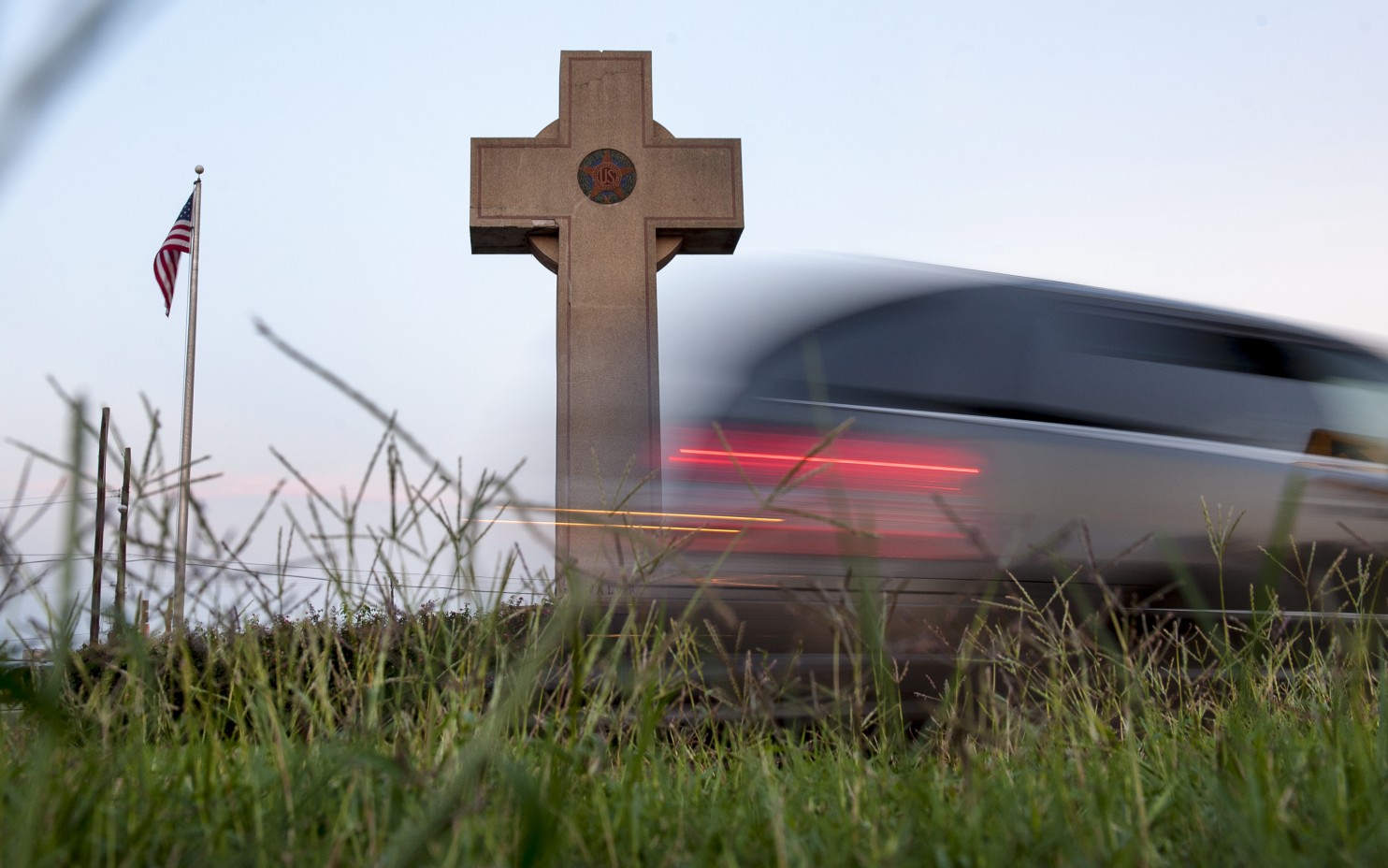Could moving a giant cross or cutting off its arms resolve a 1st Amendment case?
RICHMOND — The fate of a 40-foot-tall cross that dominates a busy Maryland intersection provoked impassioned debate in a federal courtroom Wednesday, at one point including a question about whether cutting off the arms of the cross might resolve the legal issues.
Two appeals court judges clearly stated that there is no way to view the Peace Cross in Bladensburg other than as a symbol of Christianity.
The third judge on the appeals panel just as strongly said that the marble-and-cement monument is a secular war memorial honoring the death and sacrifice of those lost in battle.
At issue for the U.S. Court of Appeals for the 4th Circuit is whether the 90-year-old Peace Cross planted on a grassy public median violates the First Amendment, which prohibits the government from favoring certain faiths over others.
At times, the judges appeared distressed to have to decide whether the monument should be removed from public land without clear guidance from the Supreme Court. The high court has allowed some monuments with religious content to stand and rejected others on public sites.
Two 4th Circuit judges suggested Wednesday that the parties could more easily resolve the case by changing who owns the land or moving the site of the cross — or even stripping the cross’s arms.
“There are no good answers,” Judge James A. Wynn Jr. said. “You ought to figure out a way not to put us in this situation.”
Judge Stephanie D. Thacker also suggested trying to find an out-of-court solution.
[A court’s cross to bear: memorial monument or religious endorsement?]
The towering, pink-hued cross honors the 49 Prince George’s County men who died in World War I. The monument was completed in 1925 with funds raised by the American Legion and local families.
It sits on land owned by the Maryland-National Capital Park and Planning Commission, a state agency that pays for upkeep and repairs, according to court filings.
The appeal was brought by the American Humanist Association after a U.S. District Court judge last year declined to order that the cross be removed, saying that it is a historically significant secular war memorial.
On the base of the monument are the words valor, endurance, courage and devotion. A bronze plaque lists the names of the men.
Thacker questioned whether commuters passing through the intersection of the two busy state roads could discern that the monument is anything other than a religious symbol, in part because the plaque is hard to see from the roadway.
“How would a reasonable observer not take that as religious?” she asked attorneys for the American Legion on Wednesday.
Christopher DiPompeo said the court should consider the monument’s long history as a community gathering spot for events marking Veterans Day and Memorial Day. The cross, he said, is part of a larger memorial park in the immediate area honoring veterans of other wars.
“A symbol that has religious significance can also take on a secular meaning,” he said, adding that the monument “must remain standing.”
Chief Judge Roger L. Gregory appeared to agree that the cross has long commemorated death and sacrifice. “Isn’t it also a place where we remember people who died so others might live?” he asked several times.
Monica Miller, who argued on behalf of a Washington-based group that represents atheists and others, said the cross-shaped monument sends a message of exclusion and noted that some ceremonies at the location have included prayers.
“It gives the impression that only Christians are being honored,” she said.
Miller said her organization would support moving the monument to private land or removing the arms of the cross.
Hiram Sasser, deputy chief counsel for First Liberty Institute, which helped in the defense of the cross, said, “It was surprising to hear a suggestion, on Pearl Harbor Remembrance Day, that it may be appropriate to disfigure a 90-year-old veterans memorial.”
William C. Dickerson, an attorney for the park and planning commission, declined to comment outside the courtroom after the hearing.
Source: By Ann E. Marimow, washingtonpost.com
 Listen Online
Listen Online Watch Online
Watch Online Find a Station in Your Area
Find a Station in Your Area







 Listen Now
Listen Now Watch Online
Watch Online
